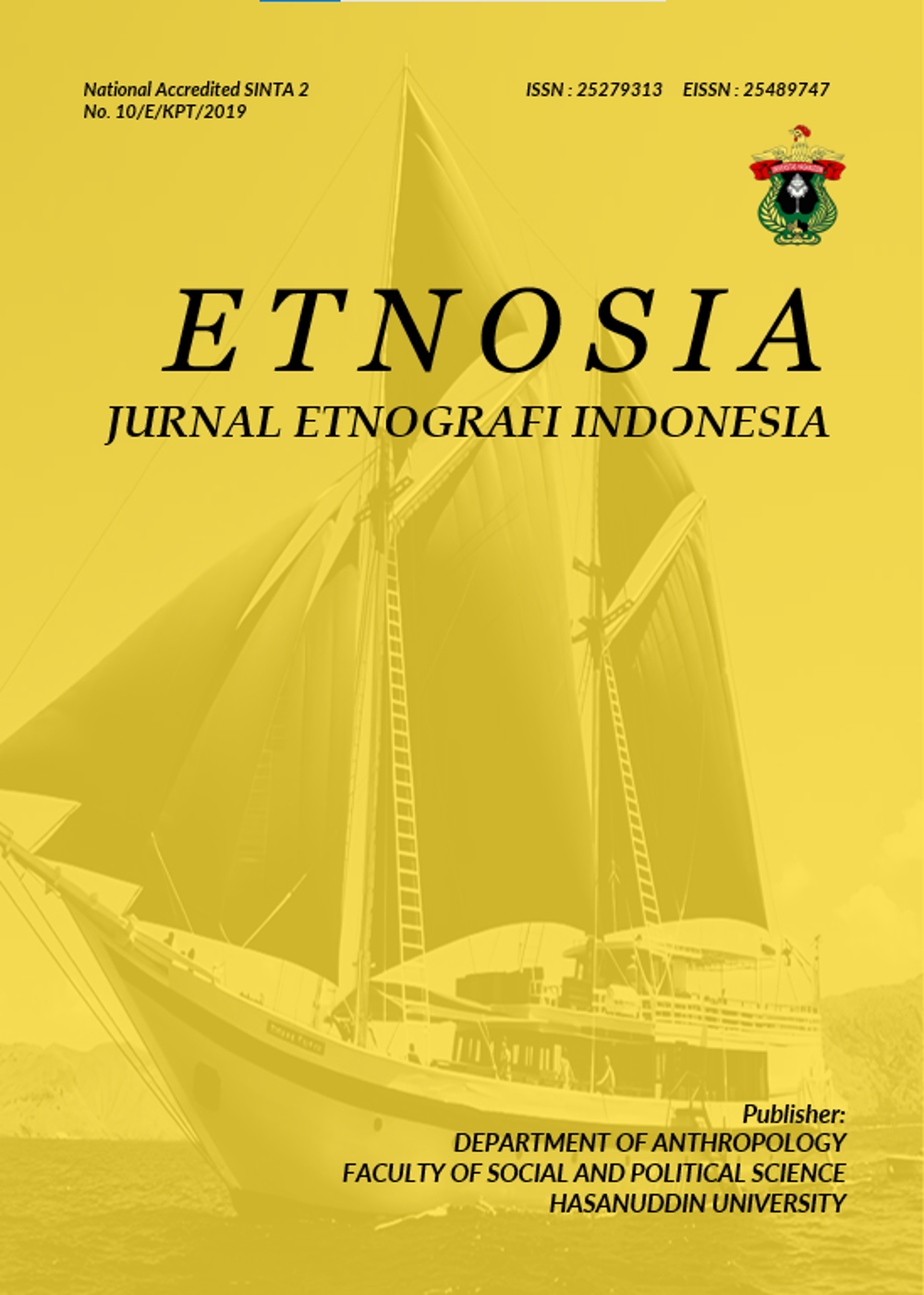Abstract
This research is an elaboration of the response of the coalition of NGOs and affected communities in rejecting the sand mining in Takalar Regency, South Sulawesi. This study aims to analyze the motives and methods of advocacy carried out by NGOs and affected communities. This study also tries to examine the factors that influence cohesiveness between those who are resistant to this extractive industry. This research uses a qualitative approach. We got data in this study through interviews, observations, and document reviews. This study found that the primary motive of the Save Coastal Alliance Against the Sea Sand Mine in Takalar expresses resistance from NGOs and affected communities on the economic and environmental effects of the extractive industry of sand mining. The advocacy method adopted includes four step strategies. The first is conducting political education for citizens; Second, build alliances with other NGOs and; Third is conducting a lawsuit and; Fourth, through non-litigation. The study also found that cohesiveness between NGOs and affected communities was the dynamics of each group internally. This has contributed to building the context of relations between NGOs and the community.References
Aspan, Z. (2017). Advokasi Litigasi Kasus Reklamasi Pantai Makassar (Perspektif Undang-Undang Lingkungan Hidup). Amanna Gappa, 25(2), 9–24.
Bungin, M. B. (2008). Penelitian Kualitatif. Jakarta: Kencana Prenada Media. Group.
D, D. P., & T, S. (2004). Transnational Protest and Global Activism. Contemporary Sociology: A Journal of Reviews, 34(5), 539–540. https://doi.org/10.1177/009430610503400551
Hadiwinata, B. S. (2003). The politics of NGOs in Indonesia: Developing democracy and managing a movement. In The Politics of NGOs in Indonesia: Developing Democracy and Managing a Movement. https://doi.org/10.4324/9780203200124
Hudson, A. (2001). “Advocacy by the UK-based development NGOs,” Nonprofit and Voluntary Sector Quarterly 31 (3):
Lay, C. (2017). Political linkages between CSOs and parliament in Indonesia: a case study of political linkages in drafting the Aceh Governance Law. In Asian Journal of Political Science (Vol. 25, Issue 1, pp. 130–150). https://doi.org/10.1080/02185377.2017.1297243
LeCompte, M. D. (1999). Designing & conducting ethnographic research.
McGinnis, R., Meadows, D. H., Meadows, D. L., Randers, J., & Behren, W. W. (1973). The Limits to Growth: A Report for the Club of Rome’s Project on the Predicament of Mankind. In Demography (Vol. 10, Issue 2). https://doi.org/10.2307/2060820
Nomura, K. (2007). Democratisation and environmental non-governmental organisations in Indonesia. In Journal of Contemporary Asia (Vol. 37, Issue 4). https://doi.org/10.1080/00472330701546566
Nomura, K. (2009). Democratization and the politics of environmental claim-making A story from Indonesia. In South East Asia Research (Vol. 17, Issue 2). https://doi.org/10.5367/000000009788745868
Savirani, A., Hanif, H., & (editor), P. S. W. (2018). “Extractive Industry, Policy Innovations, and Civil Society Movement in Southeast Asia: An Introduction.” PCD Journal, 6(1), 173. https://doi.org/10.22146/pcd.33909
Schweizer, R., Dupuis, J., & de Buren, G. (2016). Environmental innovation strategies: When and why NGOs go beyond public regulations. In Environmental Politics (Vol. 25, Issue 5). https://doi.org/10.1080/09644016.2016.1175543
Semiawan, C. R. (2010). Metode penelitian kualitatif: jenis, karakteristik dan keunggulannya. https://doi.org/10.31219/osf.io/mfzuj
Singh, & Rajendra. (2010). Yogyakarta: Resist Book. In Gerakan Sosial baru.
Sitepu, E. (2016). Peranan Partai Politik dalam Memberikan Pendidikan Politik Yang Berkarakter Terhadap Masyarakat. Jurnal Ilmiah Research Sains, 2(1), 1–8.
Sulfitra, A., & Dkk. (2019). Catatan Akhir Tahun Walhi 2019: Degradasi Lingkungan dan Bencana Ekologis di Sulawesi Selatan.
Tarrow, S. (n.d.). Power in Movement: Social Movement and Contentious Politics (3rd Ed), 2011, Cambridge University Press, New York. In Power in Movement: Social Movement and Contentious Politics (3rd Ed), 2011, Cambridge University Press, New York (p. 163).
Teegen, H., Doh, J. P., & Vachani, S. (2004). The importance of nongovernmental organizations (NGOs) in global governance and value creation: An international business research agenda. In Journal of International Business Studies (Vol. 35, Issue 6). https://doi.org/10.1057/palgrave.jibs.8400112
Turner, G. M. (2014). Is Global Collapse Imminent? MSSI Research Paper No. 4, 22.
Wickham, T. (1987). Institutions WALHI: The Indonesian Environmental Forum, Environment: Science and Policy for Sustainable Development, 29:7,. 2–4.
Winarno, B. (2012). Kebijakan Publik: Teori, Proses, dan Studi Kasus: Edisi dan Revisi Terbaru. Media Pressindo.

This work is licensed under a Creative Commons Attribution-NonCommercial 4.0 International License.
Copyright (c) 2021 ETNOSIA : Jurnal Etnografi Indonesia





